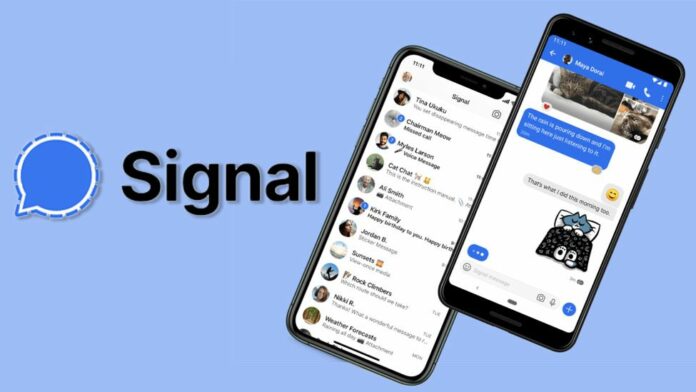What price does privacy have? End-to-end encrypted (E2EE) messaging app Signal has published a interesting overview of the costs necessary to develop and maintain their pro-privacy systems that protect user data from tracking by default.
La blog post, written by Signal president Meredith Whittaker and developer Joshua Lund, reveals that it currently spends around $14 million a year on infrastructure to run the private messaging service; and another $19 million a year in staff costs, making a total of about $33 million to keep the lights on and its “many millions” of user messages safe from unintentional glances.
It also projects that the cost of running its service will rise to around $50 million by 2025.
The publication does not break down a number of active users of the service. But it is likely to be tens of millions. ('Business of Apps' estimated that Signal had around 40 million monthly active users in 2021; while data from App Annie earlier that year suggested it had around 20 million users at the end of 2020, before a surge in usage driven by an exodus of WhatsApp users concerned about privacy policy changes of the messaging application owned by Meta).
According to the publication, only 50 full-time employees keep the messaging service running, while also conducting research to continue advancing privacy protection and, at least in Whittaker's case, she is completely dedicated to promoting public policies that have made her travel around the world in recent months to defend privacy rights and try to defend against government raids targeting E2EE.
The post conveys a clear message: Going against the grain of the tech industry by keeping users safe from surveillance is a costly but vital undertaking.
Signal is a non-profit organization, so it is not a money-making type of company. But of course you still need to receive sufficient funds to cover the costs. And clearly, those costs increase as usage increases. Which means you need to be proactive in finding ways to increase revenue that don't compromise your fundamentally pro-user stance.
As the blog post details, Signal goes much further in protecting user privacy than even major messaging apps that have implemented its E2EE protocol (such as Meta-owned WhatsApp). “For example, profile pictures and names are always end-to-end encrypted in Signal,” he writes. “This means that Signal does not have access to your profile name or chosen profile photo. This approach is unique in the industry. In fact, they have passed more than six years since we first announced this additional layer of protection and, as far as we know, none of our competitors have adopted it yet.
“Other messaging apps can easily see your profile photo, profile name, and other sensitive information that Signal cannot access. Our choice here reflects our strong commitment to privacy, but it also means that it took more effort for Signal to implement support for profile photos. Instead of a weekend project for a single engineer, our teams had to develop new approaches and concepts within the code base (like profile keys), and worked to deploy it to multiple platforms after an extended testing period.”
Reveal how much you (already) spend annually on essential things like storage ($1,3 million), servers ($2,9 million), registration fees ($6 million), bandwidth ($2,8 million), other infrastructure needs like disaster recovery ($700k), as well as the aforementioned $19 million in personnel (covering salaries, taxes, and related human resources costs), seem intended to (gently) shake up the audience and hopefully achieve that some more users will reach into their wallets to contribute and help secure the prize: the choice of a standard private messenger.
“To put it bluntly, as a nonprofit, we don't have profit-minded investors or board members knocking on the door during difficult times, urging us to 'sacrifice a little privacy' in the name of achieving monetary goals and of growth. “This is important in an industry where ‘free’ consumer technology is almost always underpinned by the monetization of surveillance and invasion of privacy,” he warns.
“Instead of monetizing surveillance, we are funded by donations, including a generous start-up loan from Brian Acton. Our goal is to get as close as possible to being fully supported by small donors, relying on a large number of modest contributions from people who care about Signal. “We believe this is the safest form of funding in terms of sustainability: ensuring we remain accountable to the people who use Signal, avoiding any single point of funding failure and rejecting the widespread practice of monetization surveillance.”
As the post also details, even alternative technology tools like Signal must enter the coffers of industry giants that own and operate essential application infrastructure like cloud computing and are also typically in the business of data capture and surveillance.




